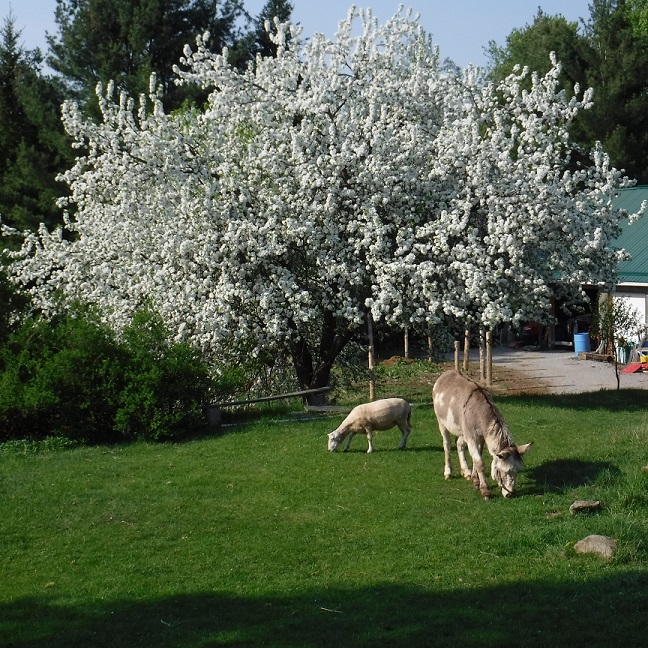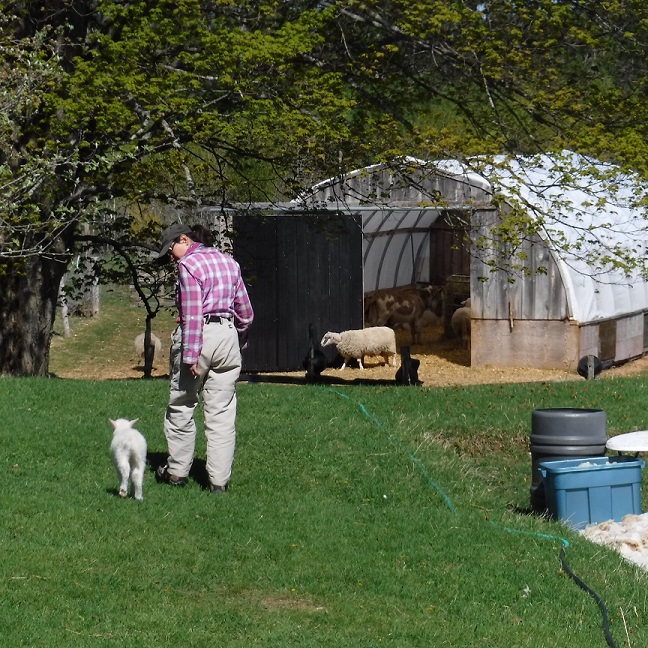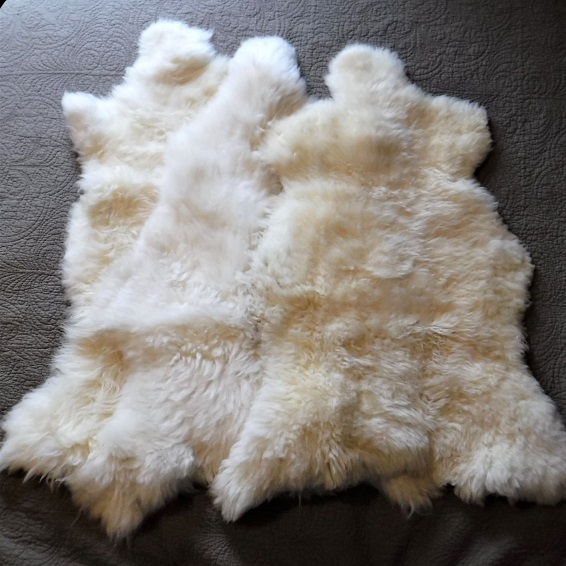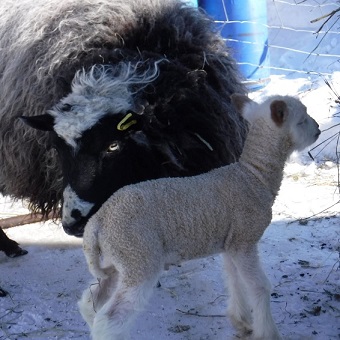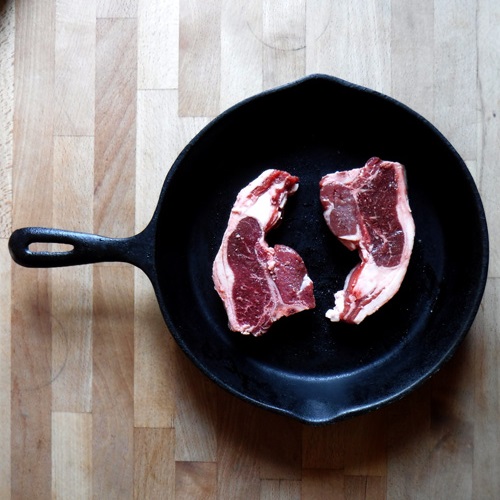
All our sheep are custom butchered into roasts and chops. Because everyone's lamb and mutton eating needs are unique, we offer different sizes of lambs, so you can ensure that you are purchasing a quantity of meat that best serves your needs.
Please note, we are a small producer and have a very limited supply of lamb and mutton. On average, we only produce between 12 to 20 lambs per year. Our custom-processed lamb is sold on a first-contact basis and the lambs are ONLY processed in the late fall.
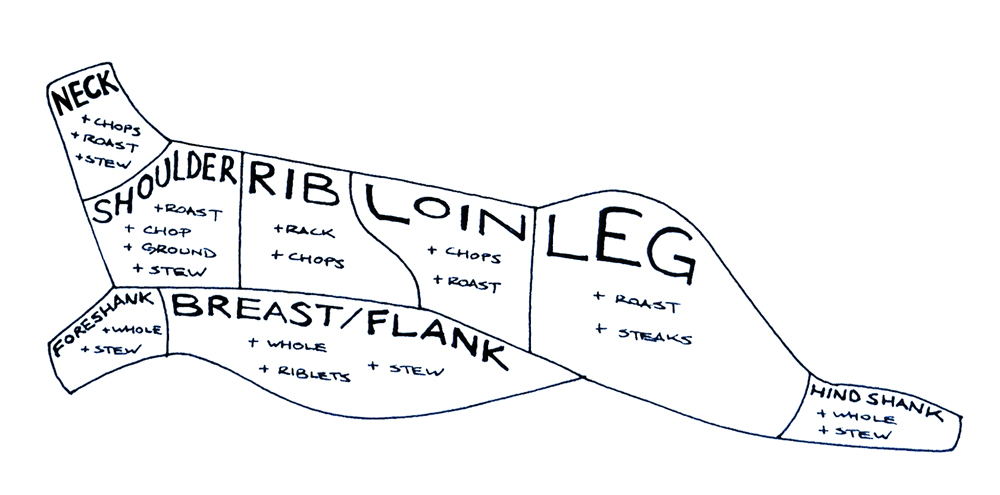
Our sheep vary in weight from 35 lbs to 100 lbs. Customers can purchase either WHOLE or HALF lamb and/or mutton.
Half Lambs are available in a standard assortment of chops and roasts:
+ Shoulder (chops)
+ Leg (roast)
+ Ribs (rack of ribs)
+ loin (chops)
+ shanks (cut in half)
+ flank/breast/brisket (whole)
+ neck (chops)
+ stewing meat, assorted organs and bones
Whole Lambs, yearlings, and mutton can be custom cut (or you may request the standard assortment of chops and roasts):
+ 2 legs (roasts or chops)
+ 2 shoulders (roasts or chops)
+ 2 racks of ribs (whole racks of ribs or chops)
+ loin (chops)
+ 4 shanks (whole or cut into halves)
+ 1 breast/flank/brisket (whole or riblets)
+ 1 neck (whole or chops)
+ stewing meat, assorted organs and bones
* Please note, it is not possible to have multiple pieces of the same part cut in different ways. For example, BOTH shoulders must be cut the same way.
** Also, ground meat is available for yearlings or mutton ONLY. Please be advised, there is an additional $50 surcharge for ground meat.
Use lamb bones to make nutritious, calcium-rich broth. Lamb stock is a mild tasting, light coloured broth that naturally thickens to a jelly when it cools.
Don't forget, each sheep also provides a natural fleece covered hide. As part of our “whole sheep” approach, we offer our meat customers the opportunity to purchase washable, tanned sheepskins as part of our Whole Sheep Package for $150.
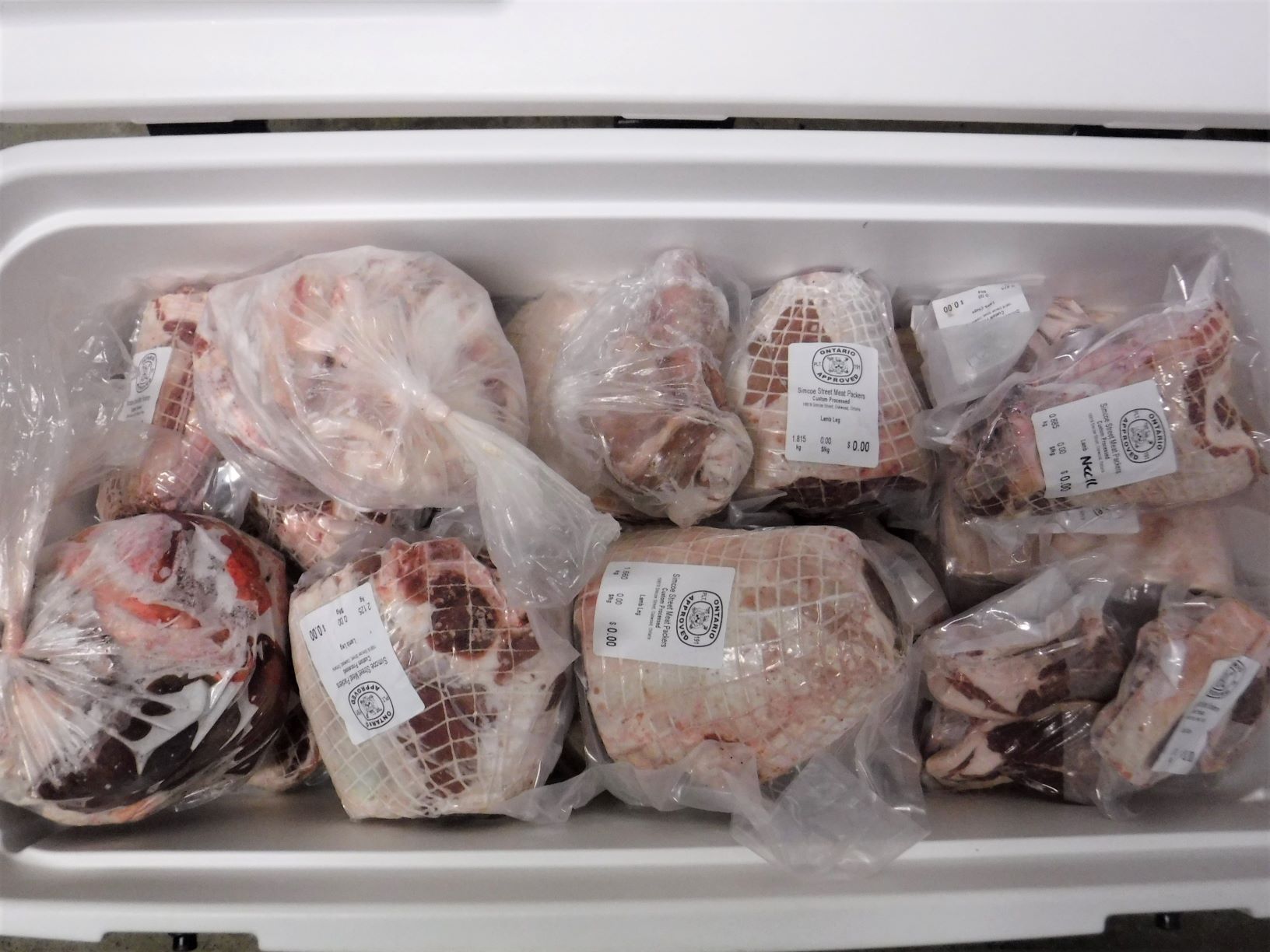
Grass-fed Lamb (Available Late Fall)
Our pasture raised lamb is a medium sized animal with tender juicy meat,
and the sweet Ontario flavour that is mildly meaty and savoury enough to
eat straight off the grill, no additional seasoning required. Grass-fed lamb
can be prepared in many different ways: from roasts to stews, braises to
grilling chops. Our lambs range in size from small, medium to large,
so you can ensure that you are purchasing the right amount of meat to suit
your needs. Lambskins are soft, with medium density, great for
seat covers.
Weight of meat on Grass-fed Lamb : Approximately 35-55 lbs
Price per pound for WHOLE lamb: $15/lb
Price per pound for HALF lamb: $16/lb
Grass-fed Mutton (2-3 years) (Available Winter)
Our sheep live full and active lives, and depending of the breed of sheep,
can grow to be either small or large sized animals. Our young mutton is
a pleasant tasting full-flavoured meat, delicious for roasts and grills;
highlighted with additional seasoning or marination with herbs and spices.
Because mutton is a more mature meat, slow and moist cooking methods such
as braising and stewing will increase the tenderness of the meat texture.
Mutton can also be processed into ground meat, ideal for burgers, meat balls, and casseroles. Fully mature sheepskins are strong and dense, making luxurious rugs.
Weight of meat on Grass-fed Mutton: Approximately 60-100 lbs
Price per pound for WHOLE mutton: $13.50/lb
Price per pound for HALF mutton: $14.50/lb
We are very thankful to have the opportunity to care for a small flock of sheep. We began in 2012 when we obtained a set of twin lambs from a local shepherd we had met at a local fair. Over the years, the flock has grown to over a dozen sheep of various breeds who live on pastureland beside our house. We take care of this flock of animals because sheep are nice to be around, they help us to improve the vitality of both wild and domestic landscapes, they are a source of delicious meat, and they are very happy to share their beautiful wool. We appreciate everything the sheep provide us with, and are dedicated to providing every one of our sheep with the best possible life. To us, that means each individual sheep is healthy and enjoying her life.
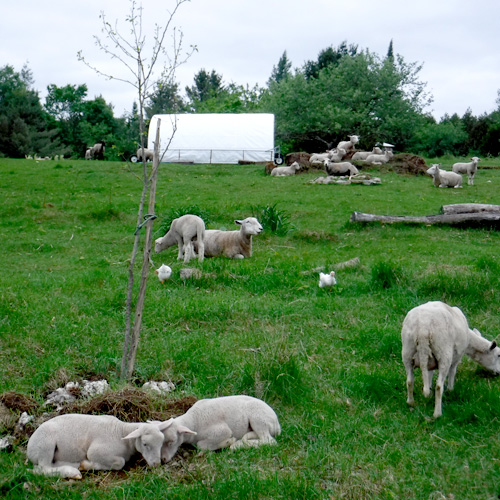
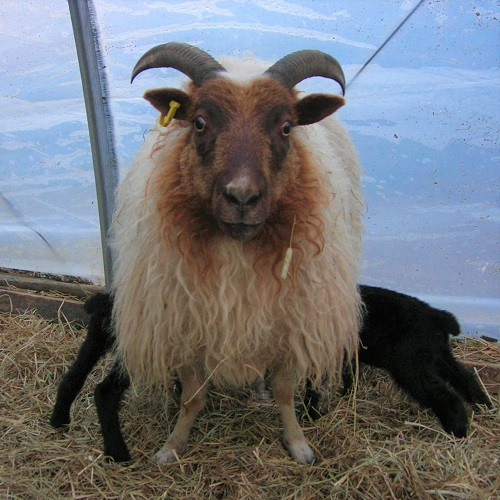
All our sheep are raised on chemical free pasture, with free access to a clean, airy, naturally lit shelter. We supplement the sheep with salt licks, plants, and plant-based treatments to facilitate good health in the flock. We do not use chemical vaccines or routine medications because we believe that meat should be as nature makes it. In the spring, summer and fall, the sheep eat the plants that grow in and around their pasture (various grasses, wild flowers and herbs, wild fruit, evergreens and deciduous trees). In the fall, winter and spring, we feed the sheep hay grown 30km down the road, and we supplement their diet with leafy branches of wild cherry, boughs of fresh evergreens, and garlic. Due to the threat of predation, the sheep are guarded by a donkey while they range the pasture during the day, and at night, they are closed into their shelter, with fresh water and a treat of oats.
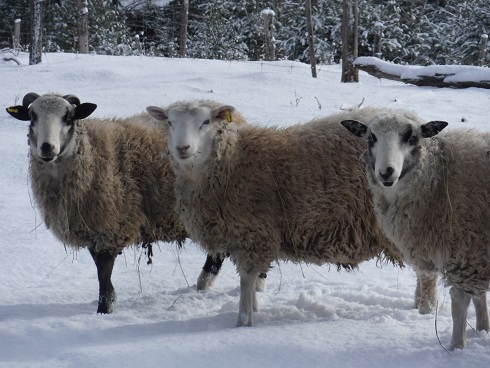
The flock of ewes are introduced to a ram once a year, giving the sheep an opportunity to breed naturally. In the best interests of our sheep, we delay lambing until late spring. Weather permitting, this gives the pregnant ewes some time of fresh, spring grass to boost their prenatal health after a winter of eating dry hay, whole oats, fresh pine and cedar. We believe that when lambs are born onto green pasture, ewes are able to provide more nourishing milk for a shorter period of time, making it easier for lambs to wean themselves from milk to grass. This benefits the health of all the sheep, and gives the ewes time to prepare their bodies for another opportunity to breed.
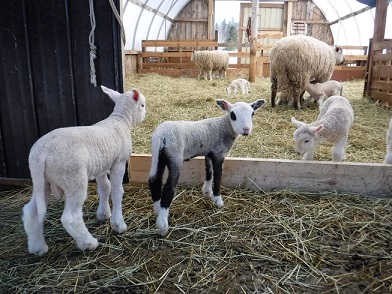
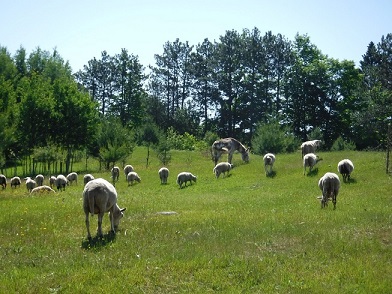
We are equally committed to providing our flock of sheep with the best possible care, as we are to providing consumers with quality meat free from medications or antibiotics. While we believe it is our responsibility to care for sick or injured sheep with appropriate, veterinary supervised health care, we also believe that it is our responsibility to only sell meat that comes from non-medicated animals who have not been exposed to antibiotics.
